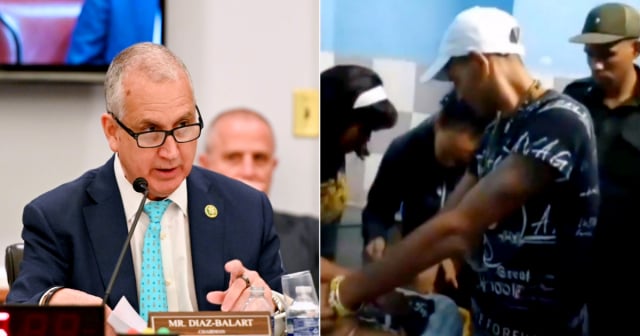Cuban-American Congressman Mario Díaz-Balart stated that Donald Trump will put an end to the dictatorships in Cuba, Venezuela, and Nicaragua when he is back in the White House.
In an interview with The Floridian, the Republican politician expressed confidence that those regimes would not have survived another four years of Trump as president.
"The dictatorships in Cuba, Venezuela, and Nicaragua are weak and unsteady. With four more years of Trump in the White House and the team he has assembled to carry out foreign policy and national security, I am convinced that these regimes will face many difficulties in remaining in power," he emphasized.
The representative from Florida noted that during Trump's first term, he worked very closely with his administration and recalled the sanctions that the White House imposed on those regimes, as well as what he did to support the opposition.
"It was a very well-designed and meticulous foreign policy aimed essentially at supporting the national security interests of the United States. It was starting to yield results, but then, of course, the Biden administration came, and all of that was wasted, lost, and given away. It's a shame; it's four years of losses," he lamented.
"But I hope that this second Trump administration will be just as good, if not more aggressive, against the enemies of the United States around the world, particularly in this hemisphere," he added.
Díaz-Balart commented on the current situation in Cuba and the recent protests by the people in the streets, as well as the repressive measures taken by the government, which he described as "horrible."
"They are very, very weak dictatorships that are on shaky ground, and I am convinced that with four years of Trump in the White House, along with the team he has assembled to handle foreign policy and national security, those dictatorships will have a hard time remaining in power," he said.
Recently, the congressman outlined the strategies that, in his opinion, Trump will implement upon taking office, and he predicted a "dramatic change" for Díaz-Canel and Maduro that should have them on edge already.
Díaz-Balart emphasized that policies toward both dictatorships will be strengthened and immigration laws in the United States will be strictly enforced.
He stated that the Trump administration will not tolerate the Cuban regime using resources to "harm the United States and oppress its own people."
Frequently Asked Questions about Mario Díaz-Balart's Statements and the Future of Dictatorships in Latin America
What did Mario Díaz-Balart say about the future of the dictatorships in Cuba, Venezuela, and Nicaragua?
Mario Díaz-Balart stated that the dictatorships in Cuba, Venezuela, and Nicaragua will not survive a second term for Donald Trump as President of the United States. According to him, these regimes are weak and shaky, and with Trump's foreign policies, they will struggle to remain in power.
What strategies did Díaz-Balart anticipate for Trump's administration?
Díaz-Balart predicted that Trump will implement a "dramatic change" in policies towards Cuba and Venezuela, with a tightening of policies and strict enforcement of immigration laws in the United States. Increased pressure is anticipated on the regimes of Díaz-Canel and Maduro, with the goal of limiting their ability to operate and oppress their people.
How has the Cuban government reacted to Mario Díaz-Balart's statements?
Miguel Díaz-Canel, the Cuban leader, has stated that the outcome of the elections in the United States was not surprising for Cuba. He expressed a willingness to engage in dialogue with Trump, provided it occurs within a framework of respect and without any impositions that compromise Cuba's sovereignty. There is no direct response to Díaz-Balart, but the Cuban government continues to criticize the sanctions imposed by the United States.
What role does Marco Rubio play in Trump's future strategies toward Latin America?
Marco Rubio, a potential candidate for Secretary of State, is seen as a key ally in the fight against authoritarian regimes in Latin America. His appointment could signify a more aggressive foreign policy towards the region, in line with Trump's strategies. Rubio has been a consistent critic of the governments of Cuba, Venezuela, and Nicaragua, advocating for sanctions and restrictive measures.
Filed under:
